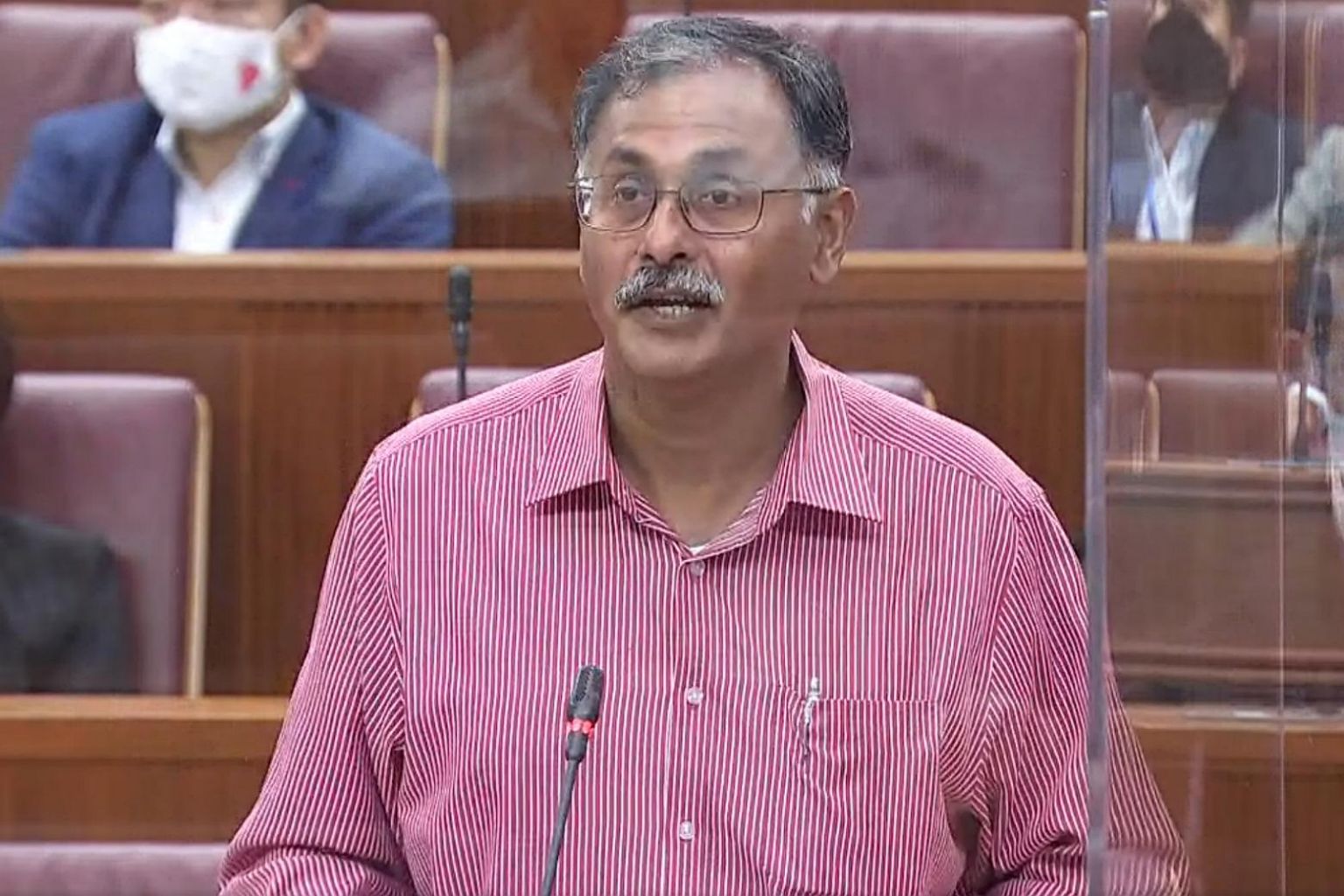Parliament: Murali Pillai calls for IT system to track attendance and questions of MPs in the House
Sign up now: Get ST's newsletters delivered to your inbox

Mr Murali Pillai wants MPs, whose proposals are accepted by the Government, to be acknowledged in Parliament.
PHOTO: GOV.SG
Follow topic:
SINGAPORE - Mr Murali Pillai (Bukit Batok) has proposed that Parliament invest in a new IT system that can check the attendance of and number of parliamentary questions raised by an MP.
Such information would make it easier for people to hold MPs to account, he said on Wednesday (Sept 2) during the debate on the President's Address.
Currently, it requires some effort to get the information, including manual counting, he noted. "I urge such records to be available more easily with an online search platform."
The proposal is among several he made to improve parliamentary processes, as part of his call for increased consensus among MPs for a more stable and mature democracy.
Another of his ideas is to establish a parliamentary record of the outcome of MPs' proposals that ministers had agreed to study.
He said the Hansard, a written record of all parliamentary proceedings, is "replete with examples of frontbenchers providing holding replies without the ability to check whether there have been any updates".
Members of the public reading the Hansard would not be able to tell if the loop had been closed.
He also wants MPs, whose proposals are accepted by the Government, to be acknowledged in Parliament, and people should be able to access it.
Another suggestion is for Parliament to provide the option of taking an MP speech as read and made public.
It would boost the efficiency of the process, such that time in the House is spent on genuine debate and points of clarification or disagreement, he said. This would avoid repetition of points which is time-wasting.
Ministers should then feel free to berate MPs who try to debate without having read the policy speeches, he added.
Currently, the debate during the second reading of proposed legislations comprise largely of MPs reading out their speeches when their turn comes, with little time to react to what had been said by others.
Mr Murali also called for the civil service to publish and present a paper in Parliament regularly stating the number of letters the service and statutory boards receive from MPs petitioning on behalf of their constituents.
The paper should indicate if the substantive response to the MP was within the time period stipulated in the Government Instruction Manual, which specifies policies, standards, regulations and codes of practice.
He said voters are maturing and have higher expectations of their MPs, seeing beyond political affiliations to the real impact made in their lives.
His proposals, he added, will help ensure constituents have access to information to make informed political choices and decisions.
"Through this (new) process, it would then be easier to assess the full diversity of views expressed by all MPs, ascertain, as a matter of record, where the consensus lies and the points of disagreement, if any," said Mr Murali.
"This will also hold MPs to account, and for our constituents to see if we do indeed put in our time and attention to parliamentary matters or whether we are simply going through the motions."

